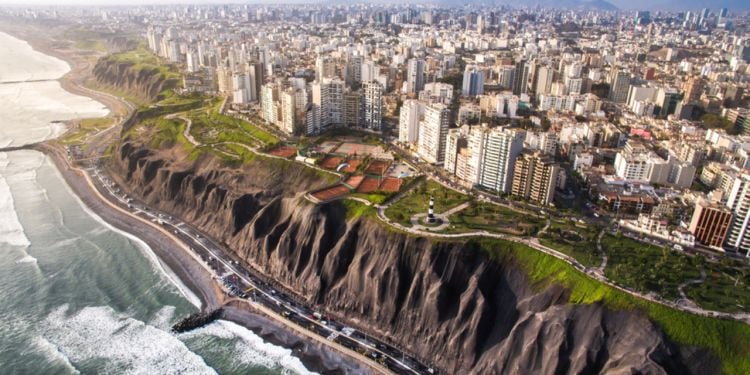
Lima, as the capital of Peru, is the country's industrial and financial centre and also a major Latin American economic hub. Lima generates two-thirds of Peru's industrial output and is home to most of the tertiary sector. Many national and international companies have headquarters or offices in Lima, making it a great source of potential jobs for expatriate considering living and working in the city.
Many foreign nationals have successfully settled in Lima over the years. The labour market is open to foreigners who bring the right skills and experience and meet the conditions for employment. Read on for more on the economy, labour market, and finding a job in Lima.
Economy
Lima's economy is a powerhouse of industry which, on its own, accounts for two third of the country's Gross Domestic Product (GDP). The coastal capital city is home to nearly 7,000 factories, mostly devoted to textiles and agri-food. Other sectors such as chemical production, leather manufacturing, the automotive industry, paper production, and petroleum by-products, also make a significant contribution to the local economy.
The port of Callao is one of the biggest fishing and commerce ports in South America, with oil, steel, silver, zinc, cotton, sugar, and coffee being the main exports.
Lima is home to the head offices of many international and multinational companies as well as banks, financial institutions, and insurance companies. The suburb of San Isidro is known to be the capital city's financial centre. In many ways, it's Lima's most developed neighbourhood.
Tourism also drives the economy in Lima, with many large hotel chains catering to both business and leisure travellers. Hotels tend to be located in the modern, commercial Miraflores district. Although tourists spend more time in Cuzco and the Sacred Valley than the capital, this is slowly changing with Lima's reputation as the gastronomic capital of South America. With many visitors now spending more and more time in Lima, it means there are more jobs available in the tourism sector, a good option for expatriates looking to live and work in the city.
For foreign teachers, Lima has many prestigious international schools, serving wealthy locals and foreigners, with tuition available in English, German, French, and other languages.
Labour market
Lima has a competitive, well-educated labour force. Employers tend to favour local recruits if they have the right skills and experience, as the process for hiring foreign employees is long and has many conditions that must be met. Having said that, many expats are recruited to Lima as international transfers from their company abroad, or recruited locally specifically because they bring skills and experiences that can't be found locally. In all cases, Lima's labour market is rather open to foreign expertise.
Finding a job in Lima
Finding a job in Lima may not be as easy as it seems. It is best to start your job search in your home company, with international companies in your industry that have offices in Lima. There are many international job websites and professional social networks that you can use as a resource. Also try the foreign Chambers of Commerce and Industry for your country in Lima, as they may be able to provide a list of international companies that are in Lima.
Once in Lima, search classified job pages in newspapers and local job networks. Finally, networking may help if you have friends or contacts in Lima. Word-of-mouth is a valued tool for local recruiters, with personal recommendations going a long way. Seek out expat networks, share your resume, and ask for recommendations and introductions. All of these are key to building a strong professional reputation in the local labour market and securing a job in Lima.
Useful links:
Empleos Perú
CompuTrabajo
Laborum
Bumeran
Expat Jobs in Peru Facebook page
We do our best to provide accurate and up to date information. However, if you have noticed any inaccuracies in this article, please let us know in the comments section below.







Comments